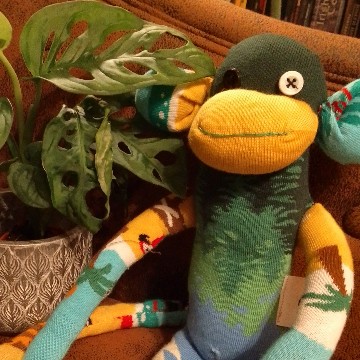Wind in den Weiden
Jetzt kaufen
Durch das Verwenden dieser Links unterstützt du READO. Wir erhalten eine Vermittlungsprovision, ohne dass dir zusätzliche Kosten entstehen.
Beschreibung
Autorenbeschreibung
Kenneth Grahame wurde 1859 im schottischen Edinburgh geboren. Nach einer Ausbildung in Oxford war er von 1879 bis 1908 Angesteller der Bank von England. Er schrieb in verschiedenen Zeitschriften satirische Beiträge und 1908 erschien sein Buch »The Wind in the Willows«, das ihn weltberühmt machte und das zu den unvergänglichen Klassikern der Kinderliteratur zählt.
Beiträge
Reading this as an adult and trying to imagine what I might have made of it as a child, I must say I'm not sure that child-me would have enjoyed this book particularly because of the surprising amount of drama in it. I've always tended to being quite, quite invested into fictional characters' fates and thus would possibly have been in tears and having nightmares more than once. (Yes, I was a rather sensitive little plant.) As an adult, the book left me with a few questions: Was the not so straight subtext that you can easily read into this intentional, with the confirmed bachlors friend group at the centre of the tale? Did contemporaries pick it up? And would someone really base the character with the most prominent flaws on his frail, peaky only child for whom he invented the stories in the first place? If so, for the last question, Toad's lesson and redemption at the end seems like a rather cruel and on the nose attempt at educating via upbraiding. After a closer look at the rather tragic family history surrounding this book, I wonder if it might not rather have been Mole who was accidentally based on Alastair Grahame. After having made myself sad successfully with that line of background reading, let me add that, at least, the illustrations by Eric Kincaid in my edition were lovely.
Ein schönes Buch mit wunderschönen Zeichnungen. Dabei bin ich eigentlich überhaupt kein Fan von zu sehr vermenschlichten Tieren (Fabeln sind ok). Für ein "Kinderbuch" erstaunlich philosophisch an einigen Stellen. Nur die Übersetzung klang an einigen Stellen doch sehr gestelzt und es werden Wörter und Wendungen benutzt, die ein Kind ohne Erklärung nicht so einfach verstehen wird. Aber das ist an sich ja kein Problem :)
Beschreibung
Autorenbeschreibung
Kenneth Grahame wurde 1859 im schottischen Edinburgh geboren. Nach einer Ausbildung in Oxford war er von 1879 bis 1908 Angesteller der Bank von England. Er schrieb in verschiedenen Zeitschriften satirische Beiträge und 1908 erschien sein Buch »The Wind in the Willows«, das ihn weltberühmt machte und das zu den unvergänglichen Klassikern der Kinderliteratur zählt.
Beiträge
Reading this as an adult and trying to imagine what I might have made of it as a child, I must say I'm not sure that child-me would have enjoyed this book particularly because of the surprising amount of drama in it. I've always tended to being quite, quite invested into fictional characters' fates and thus would possibly have been in tears and having nightmares more than once. (Yes, I was a rather sensitive little plant.) As an adult, the book left me with a few questions: Was the not so straight subtext that you can easily read into this intentional, with the confirmed bachlors friend group at the centre of the tale? Did contemporaries pick it up? And would someone really base the character with the most prominent flaws on his frail, peaky only child for whom he invented the stories in the first place? If so, for the last question, Toad's lesson and redemption at the end seems like a rather cruel and on the nose attempt at educating via upbraiding. After a closer look at the rather tragic family history surrounding this book, I wonder if it might not rather have been Mole who was accidentally based on Alastair Grahame. After having made myself sad successfully with that line of background reading, let me add that, at least, the illustrations by Eric Kincaid in my edition were lovely.
Ein schönes Buch mit wunderschönen Zeichnungen. Dabei bin ich eigentlich überhaupt kein Fan von zu sehr vermenschlichten Tieren (Fabeln sind ok). Für ein "Kinderbuch" erstaunlich philosophisch an einigen Stellen. Nur die Übersetzung klang an einigen Stellen doch sehr gestelzt und es werden Wörter und Wendungen benutzt, die ein Kind ohne Erklärung nicht so einfach verstehen wird. Aber das ist an sich ja kein Problem :)





